New signal, new expectation of the world
(Baonghean) - In his 2020 New Year's message, US President Donald Trump expressed his hopes for relations with North Korea: Thailand has stopped giving out free single-use plastic bags to customers. These are notable international issues in the first week of 2020.
“OLD BOTTLE, NEW WINE”
During the New Year's party held at the Mar-a-Lago resort in Florida, US President Donald Trump declared that he wanted to build peace with North Korea, hoped that leader Kim Jong-un would keep his commitment and hoped to receive a nice gift from Pyongyang.
On the other hand, on the first day of the new year 2020, North Korean leader Kim Jong-un announced his “revolutionary path” and warned of strengthening nuclear deterrence, showing both a defiant attitude and caution in dealing with Washington. Contrary to the expectations of the US leader, experts believe that President Trump is facing the risk of failure in the “Korean chess game”.
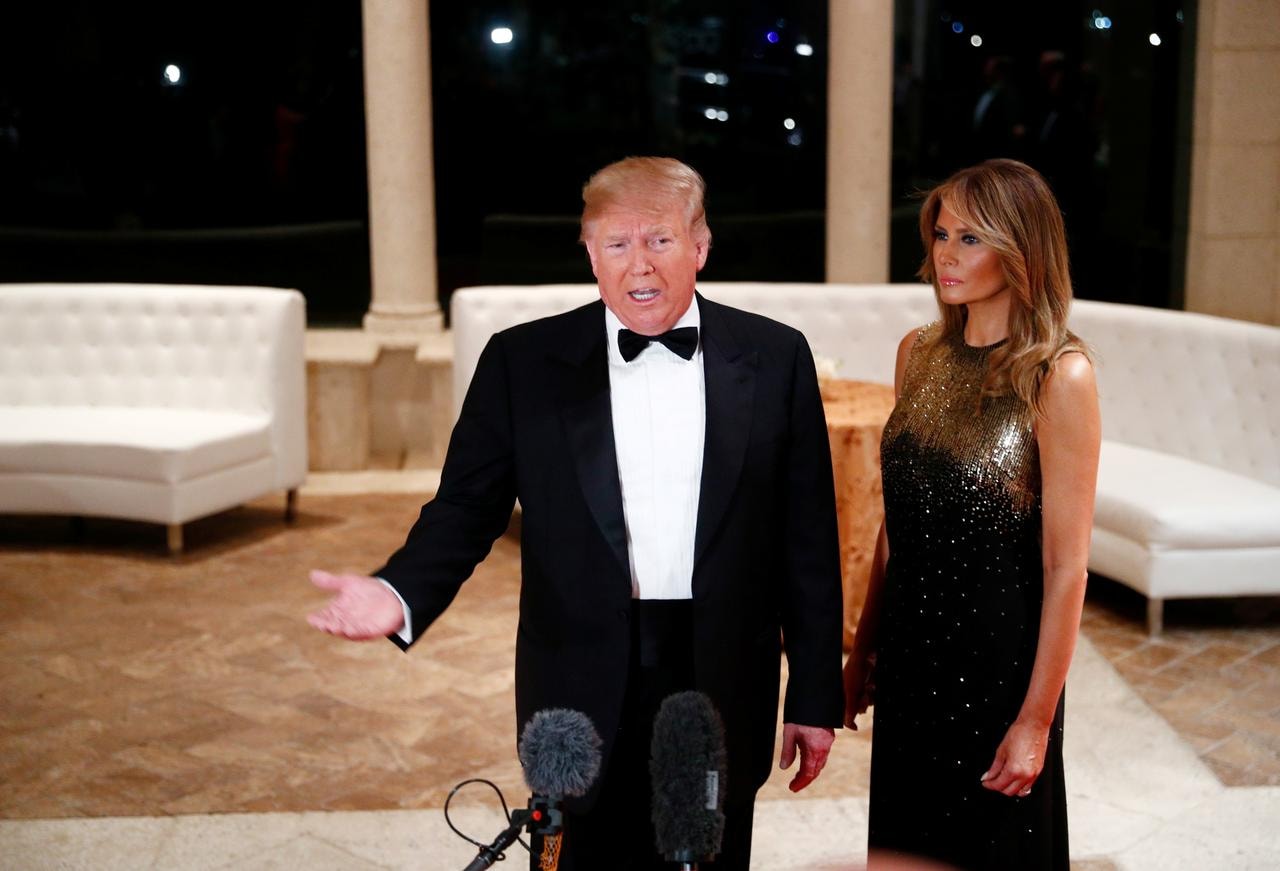 |
| US President Donald Trump and his wife Melia Trump spoke to the press on New Year's Eve, December 31, about their desire for peace with North Korea. Photo: Reuters |
President Trump entered the new year facing new, protracted crises with his old rival North Korea - directly demonstrating his challenging and cautious attitude in dealing with Washington, especially his statements about asserting American power on the international stage. The timing of these new challenges is very important, because many foreign policy experts believe that President Trump is fundamentally misjudging the reactions of his opponent, because it seems that North Korea does not fear the United States.
At the core of President Trump’s belief is that investing in North Korea’s fabulous beach hotels “overrides all other national interests” to ease simmering disagreements. But President Trump has underestimated Kim Jong-un’s confidence in North Korea’s nuclear arsenal. “After three years without an international crisis, the United States is now confronting North Korea and demanding concessions through diplomacy,” said Richard Haass, president of the Council on Foreign Relations. President Trump has rejected traditional diplomacy, preferring to offer a temporary treaty or impose sanctions.
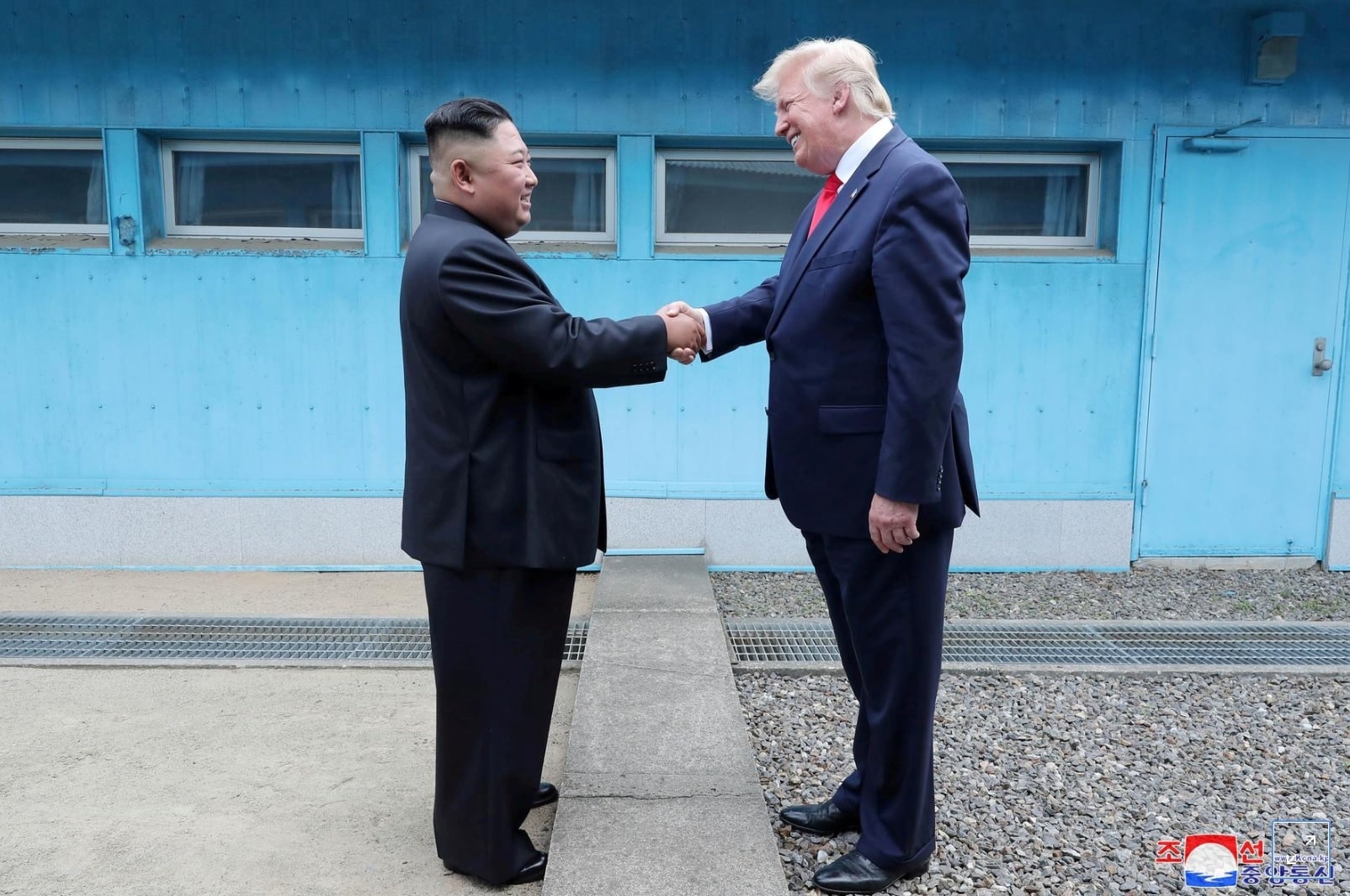 |
| US President Donald Trump shakes hands with North Korean President Kim Jong-un at the border between the two Koreas on June 30, 2019, Photo: KCNA |
Many experts believe that although many messages were sent with positive and hopeful signals, it was not a strategy. In fact, this was considered a fundamental problem for President Trump when entering 2020. President Trump was very confident when ending the first meeting with Kim Jong-un in Singapore in June 2018, but those deeper developments were not as smooth as expected.
After three summits, US-North Korea negotiations remain deadlocked over a single issue: how far Washington is willing to ease sanctions and how far Pyongyang is willing to give up its nuclear program.
Analysts say Kim Jong-un is calculating against the backdrop of political turmoil in the US, where President Trump is facing an impeachment trial in the Senate, while also focusing on the 2020 White House race. The North Korean leader does not want to rush into signing an agreement that could be canceled if Trump is not re-elected for a second term.
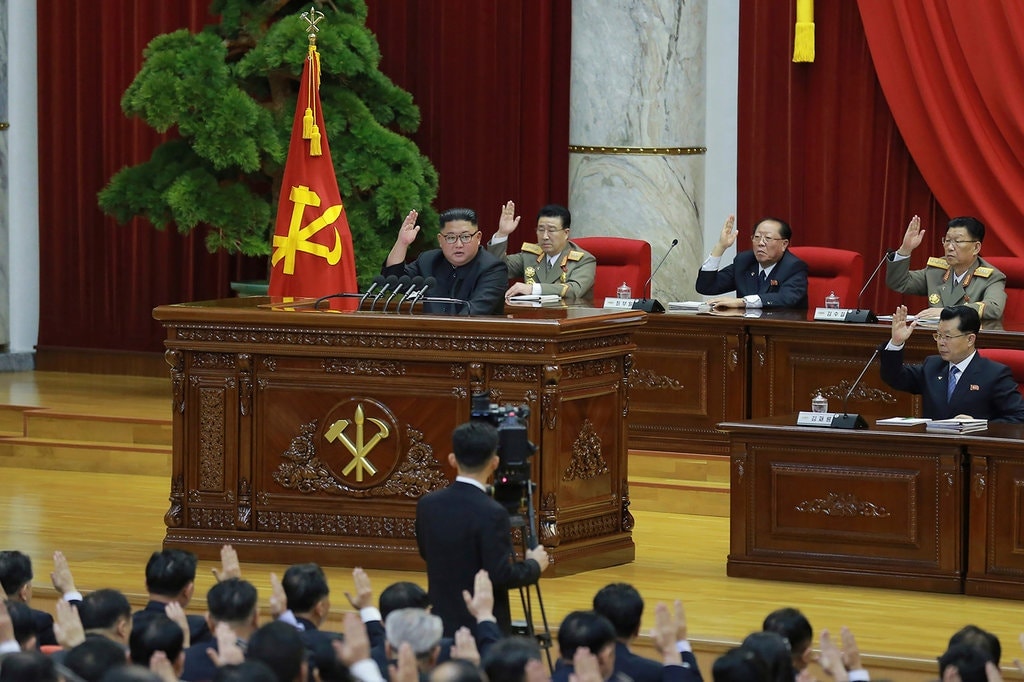 |
| Kim Jong-un at a meeting of the Central Committee of the Workers' Party of Korea and made statements about new weapons. Photo: KCNA |
“Kim Jong-un will continue to seek to provoke Washington as a way to gain the upper hand in future nuclear negotiations without directly challenging President Trump.”
THE FIGHT AGAINST PLASTIC WASTE
Thailand's Minister of Environment and Natural Resources himself was present at a shopping mall in Bangkok to hand out cloth bags to shoppers. Meanwhile, at many department stores, customers are also saying no to plastic bags, as people are increasingly aware of the harmful effects of nylon on the environment, especially marine life. Starting January 1, 25,000 retailers and supermarkets in Thailand have stopped giving out free single-use nylon bags to customers. This is one of the country's efforts to escape the list of countries with the most plastic waste in the world.
Along with the “No to Plastic Bags Every Day” campaign, the Pollution Control Department (PCD) has launched a 20-year action plan for plastic waste management from 2018 to 2037, which includes measures to prevent Thais from using seven types of plastic items: plastic bottle caps, Oxo-degradable plastic, microbeads, plastic bags less than 36 microns thick (widely known as single-use plastic bags), polystyrene food containers, plastic cups and straws. Thai officials hope the move will help reduce the consumption of 45 billion plastic bags each year.
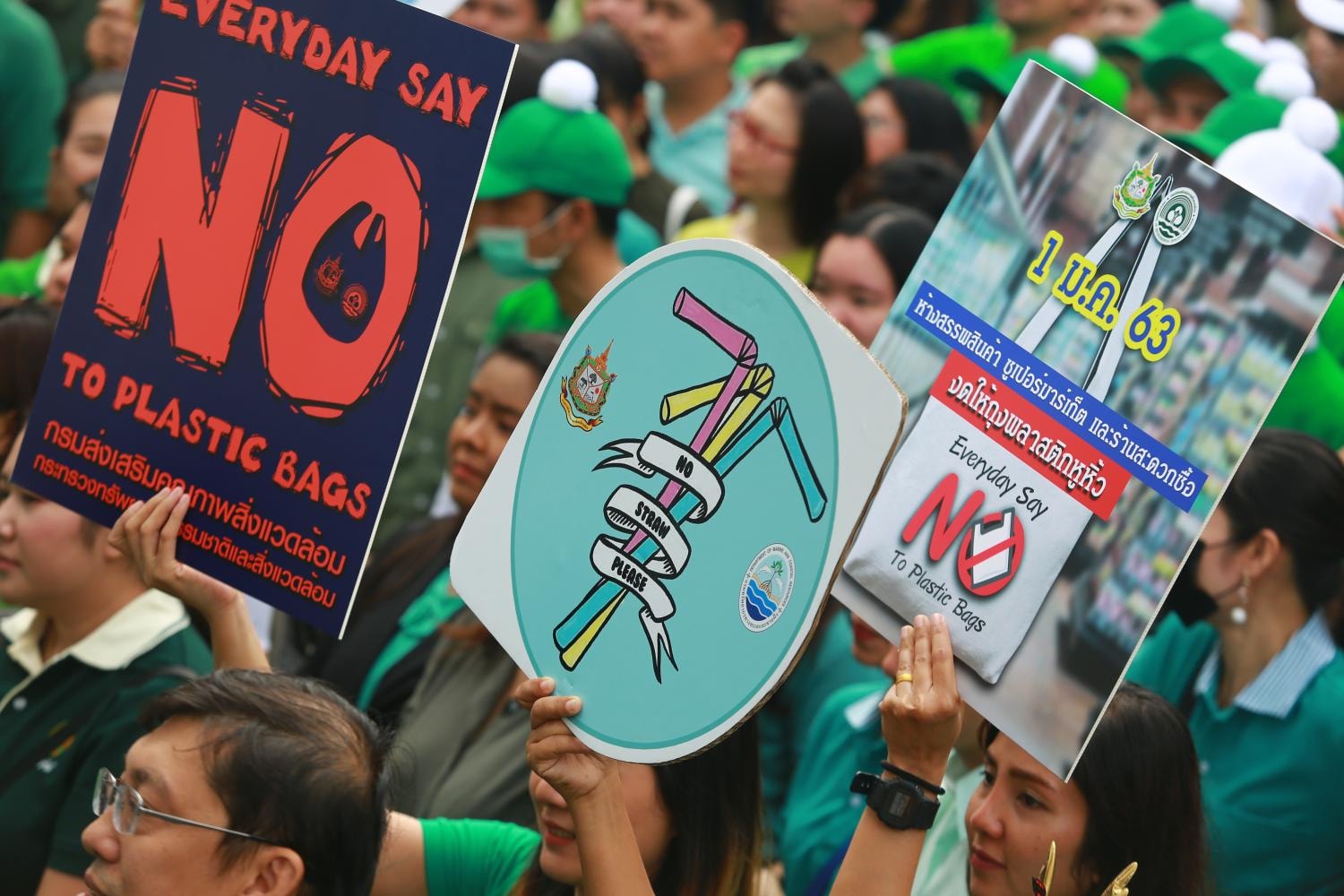 |
| Activists join the 'No to plastic bags every day' campaign in Thailand. Photo: Bangkokpost |
It is estimated that Thai consumers use 700,000 tonnes of polystyrene for food containers, 1.72 million tonnes of plastic cups and straws, and 1.17 million tonnes of plastic bags each year, adding up to about 27 million tonnes of waste. The PCD kicked off its plan by announcing a ban on plastic caps for bottled water from 2018, which it hopes will reduce about 520 tonnes of plastic annually. Moving forward, the Ministry of Natural Resources and Environment will ban plastic cups and straws next year. In addition, the Thai Food and Drug Administration has announced a ban on the use of microbeads in all cosmetic products.
Some cashiers at Golden Place supermarket said the stores are now selling paper bags for 2 baht for customers who do not bring their own, but admitted they do not have the patience to say “no” to plastic bags for large and heavy items. Moreover, while people support the policy, the campaign against single-use plastic bags is a nightmare scenario for manufacturers, who fear huge losses from the ban.
The government's campaign to stop single-use plastics has severely damaged small and medium-sized enterprises, which cannot adjust production to thicker plastic products in time, said Somchai Techapanichkul, president of the Thai Plastic Industry Association.
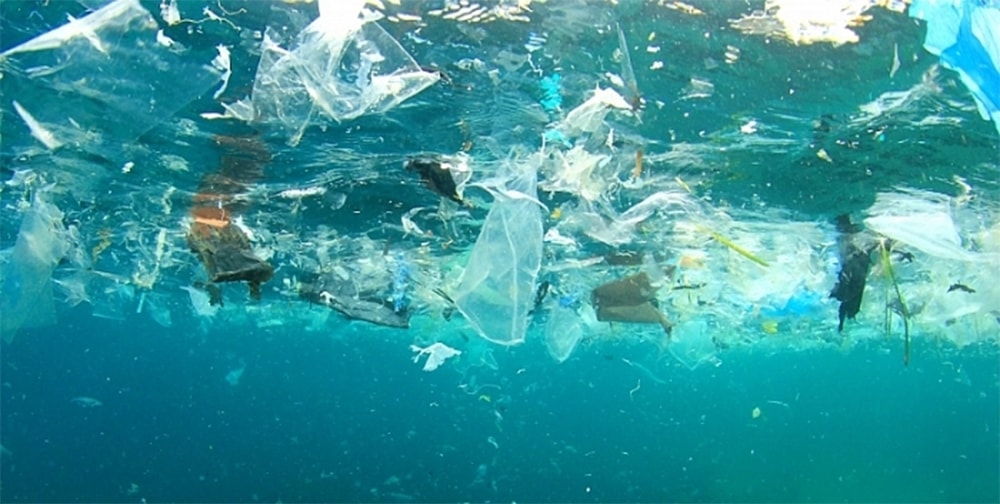 |
| Plastic waste in the ocean is mainly nylon bags and disposable plastic items. Photo: Diverlife |
According to the association, there are about 500 plastic factories nationwide, employing more than 8,000 people. The ban is likely to see a sharp drop in orders, meaning future job losses and an estimated annual loss to the industry of 30 billion baht.
“We are not against the government’s ban, but it needs to be gradual. An immediate stop will completely destroy business. Meanwhile, we have not seen any move by the government to support businesses facing this “hit” - Mr. Somchai said, adding that the association has sent a petition to the minister, asking for compensation for companies and workers.
To replace nylon bags, many manufacturers have switched to producing bags from natural sources. The investment cost for this innovation is not expensive, however, the cost of each bag is 4 times higher than nylon bags, leading to increased costs for stores. Therefore, replacing nylon bags is not easy "overnight".
Along with reducing the use of nylon bags, authorities said the Government also needs to take measures to manage plastic waste and promote recycling by encouraging people to dispose of waste responsibly and not throw it into the sea.
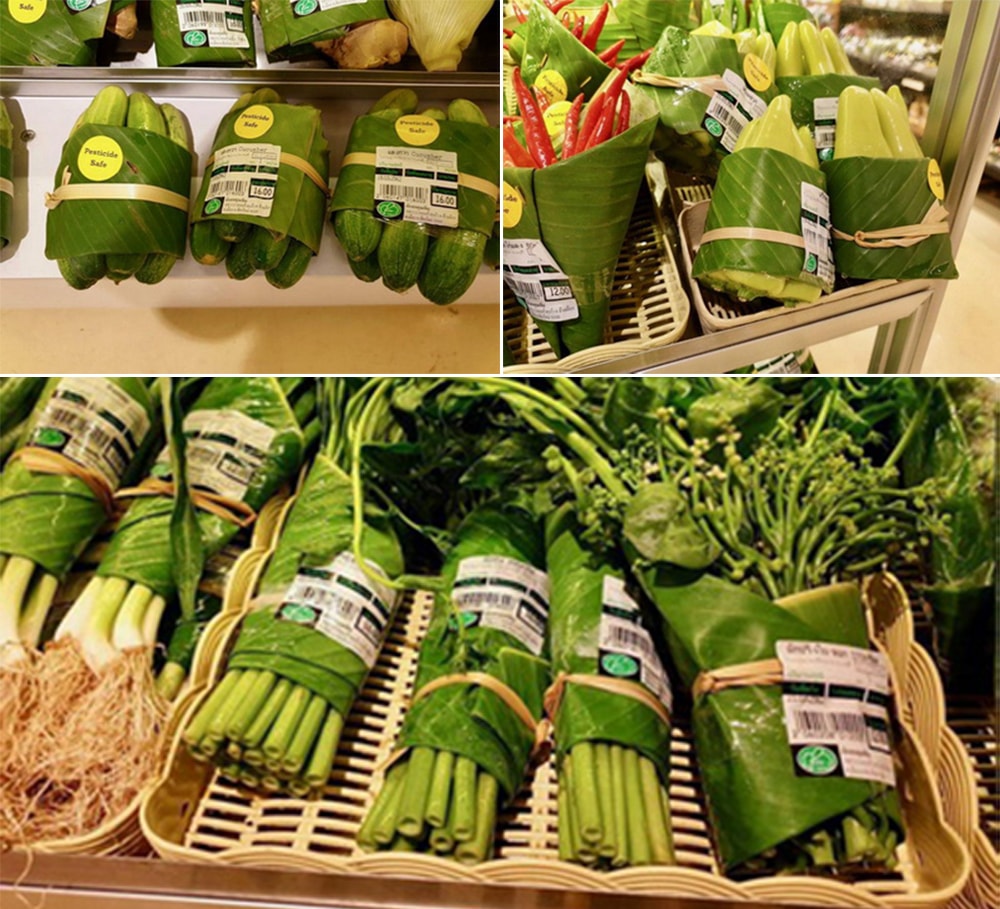 |
| Rimping Supermarket in Chiang Mai city uses banana leaves instead of plastic bags. Photo: Forbes |
While last year the world witnessed natural disasters caused by climate change, Thailand has shown its determination to protect the environment since the beginning of 2020. It is estimated that in the second half of 2019 alone, Thailand has reduced the consumption of 2 billion nylon bags, equivalent to more than 5,000 tons of plastic waste released into the environment.

